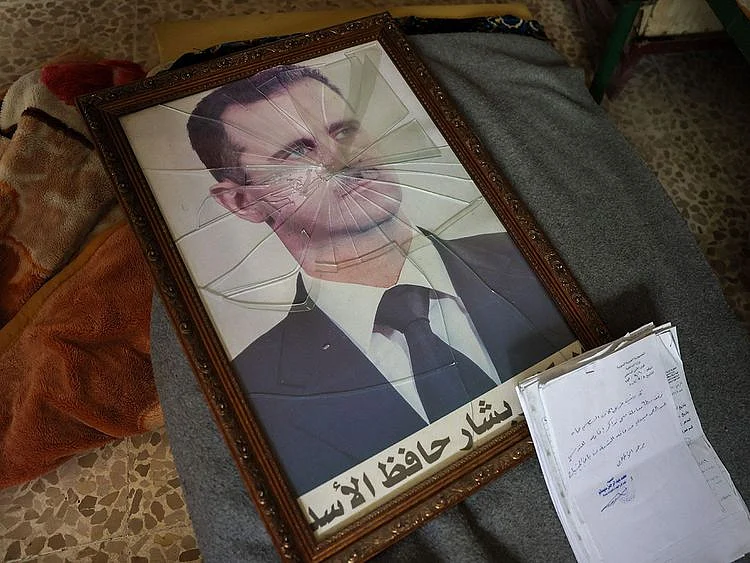Understanding Arab world's evolving loyalties
Exploring how public opinion and political stance transform across the region

Across much of the Arab world, there is a notable shift in public opinion: the transition from steadfast support for certain figures or regimes to outright criticism once those regimes lose power.
In his novel Diary of Saad Abbas: 1952—1958, Saad Bayoumi reflects on the years following the Egyptian revolution. He recounts how both the media and the general public, once supportive of King Farouk, quickly changed their stance and became vocal critics of him after his fall from power.
Similarly, an Iraqi poet once praised Saddam Hussein in a poem, expressing that “If it were not for you, the moon would not have appeared.” However, after his regime ended, the admiration once showered upon him was quickly replaced with harsh criticism.
This pattern can also be observed after the fall of Bashar Al Assad’s regime. Many who had been strong defenders of Assad were quick to shift their stance and began openly condemning the regime once it became clear that its downfall was imminent.
So, what accounts for this change in attitude? Why do some people who once fervently defended these regimes suddenly turn against them? This shift can be attributed to a complex mix of fear, self-interest, and the influence of prevailing social norms, especially in politically charged environments.
In the 1980s, during a meeting of Arab foreign ministers in Kuwait, discussions often became heated. The so-called “Arab revolutionaries” voiced strong rhetoric, but some were quick to counter this with more reasoned perspectives.
One notable instance involved Syrian Foreign Minister Abdul Halim Khaddam, whose emotional remarks were met with a calm and measured response from the late Saudi Foreign Minister Saud Al Faisal.
In such politically volatile times, some individuals, despite their strong rhetoric, can be seen as praising the prevailing power without question. The irony is that figures like Abdul Halim Khaddam, who once supported the regime, later became some of its most vocal critics.
In The Diary of Saad Abbas, a character who serves in the political police reflects on the political landscape. When questioned about his ability to serve a new regime after being loyal to the old one, he cynically remarks that while presidencies may change, the policies often remain the same.
Fear, in such circumstances, can lead people to act in ways they might not have under normal conditions. For example, some individuals who worked in prisons under the Assad regime did so out of fear of retribution, believing that more extreme actions would earn them favour with their superiors. These practices, however, have been widely condemned and remain a source of great concern.
Likewise, those who lived under Saddam Hussein have recounted painful experiences that highlight the harsh realities of such regimes. These stories are now more accessible, through interviews and written accounts, offering insight into the struggles faced by ordinary people under authoritarian rule.
Even today, in some regions, we still see remnants of these authoritarian legacies. Some individuals continue to advocate for regimes that have perpetuated injustice, even while their own actions may be driven by fear and self-preservation rather than genuine support.
An arduous process
In many of these societies, achieving development or progress has been difficult. Instead of growing, they often face internal divisions. Nations such as Sudan, Syria, Iraq, and Libya still grapple with the consequences of oppressive rule, and the recovery from these legacies remains a long and arduous process.
The societies that have been subjected to these regimes face significant challenges in rebuilding. The legacy of oppression has left deep psychological wounds that will take time and effort to heal. These wounds are not just political; they are deeply personal, affecting individuals on an emotional and psychological level.
The road to recovery is long and fraught with difficulty, requiring individuals who are able to see beyond the past and work towards a future where freedom and dignity are respected. This process will take time, but it is essential for the healing of these societies, and for the possibility of a more peaceful and prosperous future.
Ultimately, the challenge for these societies is finding a way to heal from the wounds inflicted by years of political repression. This requires individuals with the clarity and courage to confront the past and work toward a future where different voices can coexist in peace.
Mohammad Alrumaihi is an author and Professor of Political Sociology at Kuwait University
Sign up for the Daily Briefing
Get the latest news and updates straight to your inbox
Network Links
GN StoreDownload our app
© Al Nisr Publishing LLC 2026. All rights reserved.